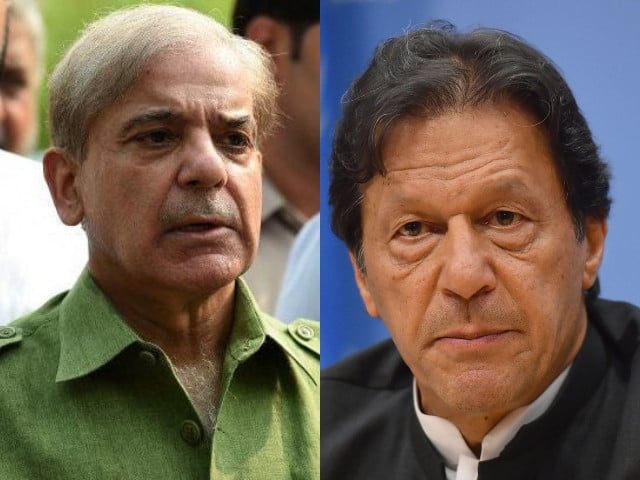The rejection of beleaguered former Prime Minister Imran Khan’s offer for talks by the ruling parties has further escalated the already tense political landscape in Pakistan. The ruling Pakistan Muslim League-Nawaz (PML-N) and other prominent parties have categorically stated that negotiations are reserved for politicians, not terrorists. The mounting crackdown on the Pakistan Tehreek-e-Insaf (PTI) and its members, following allegations of vandalism and arson, has pushed Imran Khan to seek a National Reconciliation Ordinance (NRO) for himself. This article delves into the responses from key political figures and sheds light on the deepening crisis faced by the PTI.
1. Opposition Rejects Talks with Alleged Terrorists The supreme leader of the PML-N, Nawaz Sharif, took to Twitter to firmly declare that talks would not be held with a group of terrorists and saboteurs. He condemned the PTI leaders and workers for their alleged involvement in vandalizing state and army properties. According to him, their actions, which included burning memorials of martyrs and destabilizing the country, disqualify them from engaging in negotiations.
2. Talks Are Not for Attackers of the State Federal Minister for Information and Broadcasting, Marriyum Aurangzeb, asserted that those who attack the state must face punishment, not negotiations. She further claimed that Imran Khan’s call for talks was actually an appeal for an NRO, suggesting that he seeks amnesty for his alleged wrongdoings. Marriyum Aurangzeb emphasized that engaging in talks with individuals who desecrated memorials of martyrs would only tarnish their memory, and such actions should not be rewarded with negotiation.
3. Imran Khan’s Hypocrisy Exposed Imran Khan, who previously criticized the National Reconciliation Ordinance during the tenure of former military ruler Gen (retd) Pervez Musharraf, now finds himself appealing for a similar arrangement. Marriyum Aurangzeb highlighted his inconsistent stance, stating that Imran Khan had vehemently denied granting an NRO to “looters.” She pointed out that his call for talks came after incidents of burning ambulances, hospitals, schools, and inciting violence among the youth. Marriyum Aurangzeb firmly declared that there would be no negotiations with Imran Khan.
READ MORE: The Aspark Owl: Setting Electric Vehicle Speed Records and Defining Hypercar Performance
4. Disintegration of PTI and Abandoned Leadership Marriyum Aurangzeb drew attention to the disintegration of the PTI, stating that parties without a strong political foundation tend to crumble. She highlighted the fact that Imran Khan’s party leaders had abandoned him en masse, raising questions about his leadership. Additionally, she reminded Imran Khan that he had not engaged in discussions with the opposition on vital issues such as the economy, Kashmir, national security, COVID-19, and the FATF issue. His sudden urge for talks now appears insincere and opportunistic.
5. Accusations and Condemnations Federal Minister for Poverty Alleviation and Social Safety, Shazia Marri, who belongs to the Pakistan Peoples Party (PPP), held Imran Khan accountable for the aftermath of the May 9 incidents. She dismissed the idea of talks as mere eyewash and accused Imran Khan of ordering attacks on Jinnah House in Lahore and the GHQ in Rawalpindi. Shazia Marri criticized him for safeguarding his own children while inciting the youth of the nation to commit anti-state acts. She highlighted the efforts made by PPP Chairman Bilawal Bhutto Zardari to foster negotiations but claimed that Imran Khan sabotaged those endeavors.
6. Imran Khan’s Downfall and Accountability Jamiat Uleme-e-Islam (JUI-F) spokesperson Hafiz Hamdullah referred to Imran Khan as the mastermind behind the May 9 attacks. He deemed the targeting of military installations as an act of waging war against the state and argued that rebels should face severe punishment, not negotiations. Hafiz Hamdullah predicted Imran Khan’s destined path to jail and emphasized that his appeal for talks was nothing more than a joke. He called upon Imran Khan to take responsibility for his actions.
Conclusion: The rejection of talks by the ruling parties in response to Imran Khan’s offer has escalated tensions within the political landscape of Pakistan. The opposition firmly asserts that negotiations are reserved for politicians, not alleged terrorists and saboteurs. The deepening crisis faced by the PTI, coupled with the abandonment of its leaders, highlights the challenges confronting Imran Khan’s leadership. As the political deadlock persists, the fate of the nation remains uncertain, leaving the possibility of further confrontations on the horizon.




